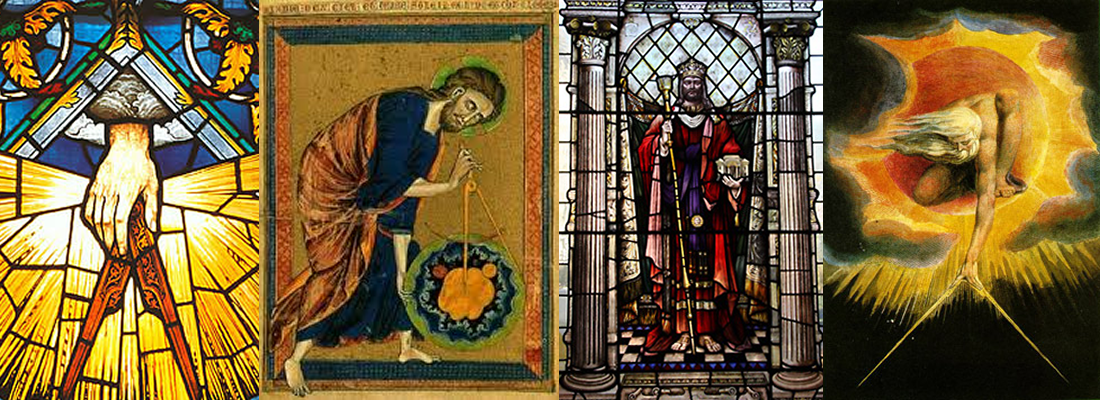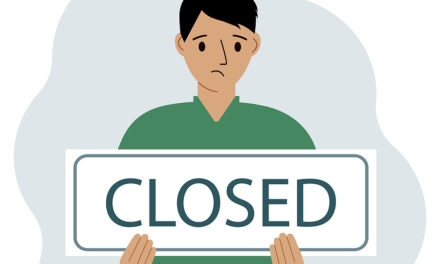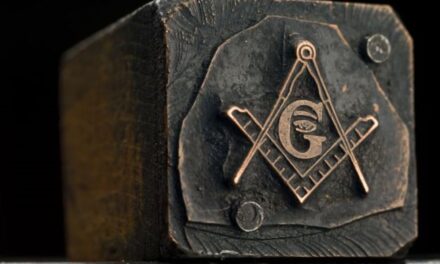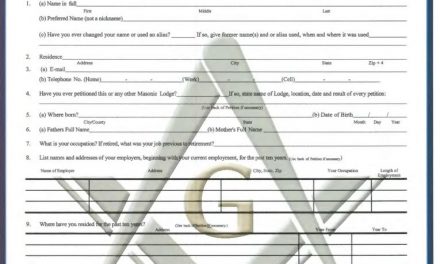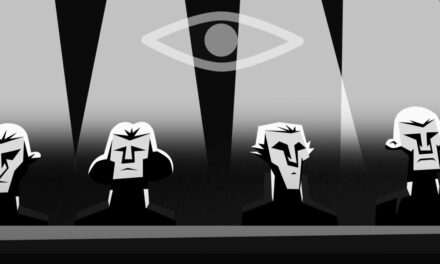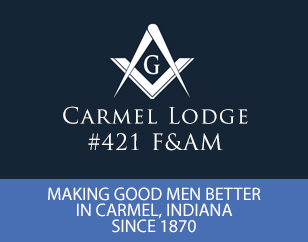One of the most misunderstood aspects of our Masonic teachings is the relationship of Freemasonry to organized religion. Some of you have no doubt been exposed to some of the attacks on Freemasonry by some religious groups. Some of these attacks grow out of an honest misunderstanding of Masonry, and some are the willful distortions of our philosophy. The basic religious position of Masonry is that there is one omnipotent Supreme Being, and each human being has an immortal soul, and there is an afterlife of some kind. But Masonry does NOT tell its members how to worship. That is an individual matter.
Over the past few years, there have been radio talk shows and television programs that have attacked our Fraternity. Most of these programs have produced audio and video tapes, as well as books and pamphlets, that claim to expose the so-called evils and secrets of Freemasonry. Some of these books and videos even go so far as to claim that our Fraternity is part of some world-wide conspiracy to take over the world by controlling the government, the C.I.A., and the world banking system. These books, pamphlets and video tapes are not free. They are for sale to make a profit for the author.
Probably every Mason has a friend, a neighbor, a co-worker or even a relative who has heard or seen one of these programs or has been given one of these anti-Masonic books or pamphlets. Therefore, it’s very important that every Indiana Mason be aware of the common criticisms raised by the authors of these programs and books.
The reasons for the recent rise in anti-Masonry are complex and are closely tied to the rise in religious extremism. From Northern Ireland to Iran, from the Middle East to the United States, religious extremism is a growing force. Disturbed by the rapid pace of social and cultural change, especially the apparent decline of moral values, some people have sought refuge from the complexities of modern life by embracing absolute views and rejecting the toleration of others and other beliefs.
For these people, simple, easy answers bring comfort in a rapidly changing world. Thus, some churches have become very narrow in their beliefs, forcing their members to conform to these narrow views or leave the church. The next step is to yield degrees of control within the church to very vocal extremist factions. These extremist factions focus their fears on specific enemies. The preferred cure-all is to destroy the enemy.
Our Fraternity has become one of these targeted enemies precisely because Freemasonry encourages its members to think for themselves and form their own opinions on many important topics, including religion. Therefore, some churches have expressed concerns, and even condemnations, of Freemasonry.
In 1993, the well-known Masonic author John J. Robinson published the book, A Pilgrim’s Path, which is one of the best books written to answer the critics of Freemasonry. Proceeds from the sale of this book were pledged to finance the newly founded “Masonic Information Center,” a branch of the Masonic Service Association headquartered in Silver Spring, Maryland. The Masonic Information Center was formed to give American Freemasonry a unified voice in providing accurate information to the national and local media, responding to the criticism leveled at the Masonic Fraternity, and assisting Grand Lodges and their members in disseminating factual information about Freemasonry.
Several Masonic leaders from the United States and Canada form the steering committee for the Masonic Information Center and meet several times a year in Washington, D.C.
Recently, in a simple tri-fold brochure, the Masonic Information Center addressed the eight major points of criticism that have been brought against our Fraternity. Many of you may recognize these eight criticisms as the same eight points that appeared in the resolution that was voted on at the Southern Baptist Convention in the Summer of 1993.
For the most part, these eight points of criticism are the result of a simple matter of misinformation or misunderstanding. Most of the issues deal with the language or the vocabulary of words used in Masonry. Every organization or sphere of activity has its own vocabulary of words which are understood within the group, but which may be easily misunderstood by persons outside the group. (For example, if you are going to watch a football game, you’d better understand that “a tight end” does not refer to how much a player has had to drink.)
Here is a brief explanation of some of the misunderstandings in the criticisms of Freemasonry:
1. We are accused of using offensive titles” like the term, “Worshipful Master.” This is one of the most commonly misunderstood terms in Masonry. But the Master of a lodge is called the “Master” in the same way that a skilled electrician is called a “Master Electrician,” or the leader of a Scout Troop is called a “Scout Master.” The term originated in the Middle Ages when the most skilled workmen were called “Master Masons” simply because they were masters of their craft.
A great deal of Masonic vocabulary dates from that period. The term “Worshipful” is a term still used in Canada and England to refer to officials like the Mayor of a city. “Worshipful John Doe” means the same thing as “Honorable John Doe.” If it were translated into a term which might be understood today, it could be “Respected Master” because he is the elected presiding officer of the organization and is due the respect of its members. In the old John Wycliffe translation of the Bible, “Honor thy father and thy mother” is translated as “Worship thy father and thy mother.” There is nothing irreligious or sacrilegious in the title as it is used in Masonry.
2. We are accused of having offensive rituals.” Anti-Masonic writers have criticized our use of what they call “bloody oaths” referencing our use of the penalties in the obligations. As we all know, there penalties are purely symbolic and are not even used by all Grand Lodges. They refer to the shame a good man should feel at the thought he had broken a promise or failed to keep his word. Nowhere in any Masonic degree does any Mason promise that he will participate in the execution of such a penalty. Historically, the only penalties for breaking the miles of the Fraternity are reprimand, suspension and expulsion.
3. We are accused of paganism. Some critics of Freemasonry claim that the Fraternity espouses the teachings of “pagans” because we often refer to the ancient Greeks and Romans. But, the study of the history of man demands that we recognize the contributions of the early philosophers. For instance, the idea that a medical doctor must act in the best interest of his patient comes from the pagan Hippocrates. In almost every field of study, including Masonry, we must review the work of early writers and thinkers. This does not mean that we must always believe as they believed, and Freemasonry does not tell its members what they must believe in matters of faith. Our role as Masons is not to accept, embrace, or proclaim as true ANY religion or body of religious dogma. Neither do we interfere with the religious beliefs of any of our members. We have no desire to call into question anyone’s religion or religious beliefs. One of the principles of Freemasonry is that one’s obligations to Masonry will not interfere with his duty to God, as the individual defines his duty.
4. The critics of Freemasonry have complained that we refer to the Holy Bible in Masonic ritual as part of the “furniture of the lodge.” They claim that we hold the Bible in no more regard than a chair or a table. This simply isn’t true. Rather, it means that we consider the Volume of Sacred Law to be “essentially necessary” to holding a lodge meeting: The Holy Bible is always open on the Altar in the center of the lodge room whenever the lodge is at labor.
5. Some critics of Freemasonry are concerned that when Masons use the term “light” that someone might think the word refers to salvation. But Masonry uses the term as a symbol of “truth” or “knowledge.” This is a very old symbol. The symbol of the lamp of knowledge often appears on many graduation cards and diplomas. Masons know that knowledge is the only way to be an informed citizen and protect the right given to us in a democratic society.
6. Some of the critics of Freemasonry charge that the Fraternity teaches that Salvation can be attained by good works rather than by faith. Well, Masonry does teach good works, but so do the Lion’s Clubs, the Boy Scouts and many other secular organizations. Masonry does not teach any path to salvation. That is the job of your church, not your Fraternity.
7. There are those who claim that Masonic writers teach the heresy of Universalism. Universalism is the doctrine that all men and women are ultimately saved. Again, Masonry does not teach universalism or any other doctrine of salvation. As a nonsectarian Fraternity, Freemasonry does accept good men of all faiths. If our critics would condemn us for toleration, let them do so. But to be consistent, they would then also have to condemn all non-sectarian organizations.
8. Lastly, some of our critics allege that, “Most lodges refuse to admit African-Americans as members.” Masonry is an international organization. There are hundreds of thousands of Masons of all races and all nationalities in nearly every comer of the free world. Our petition for Masonic membership does not ask the race of the petitioner and it would be wrong to do so. In 1992, at the 275th anniversary celebration of the United Grand Lodge of England, there was a far greater representation of all races than there was at the Southern Baptist Convention in Houston in 1993. Nevertheless, the racial makeup of Masonic lodges in any given country usually reflects the make-up of the society in which they operate. This is usually no different than the make-up of other organizations or churches in the same community.
Our role as Masons is not to accept, embrace, or proclaim as true ANY religion or body of religious dogma. Neither do we interfere with the religious beliefs of any of our members. We have no desire to call into question anyone’s religion or religious beliefs. One of the principles of Freemasonry is that one’s obligations to Masonry should not interfere with his duty to God, as the individual defines his duty.
Finally, let us leave you with this word. Freemasonry IS compatible with Christianity, or any other religious faith of which you or I may be a member. And, as a nonsectarian Fraternity, it opens its door to all good men who believe in a Supreme Being. As such, it is no different than any other non-sectarian club in your community. It is an organization of good men banded together to develop themselves further, ethically and morally, and to benefit the community in which they live.

